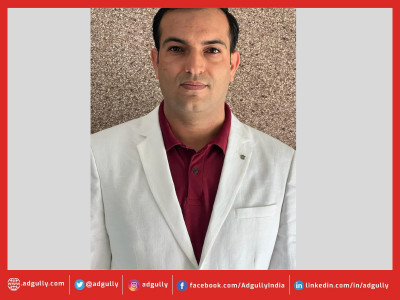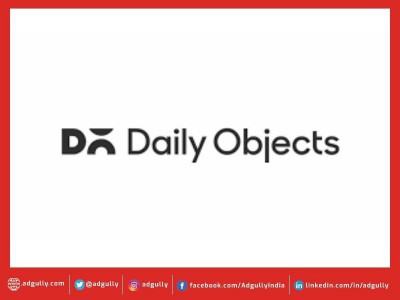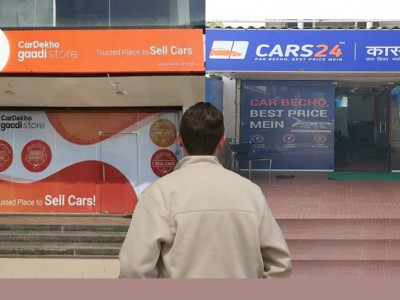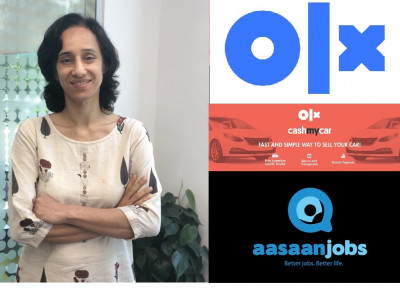Revival & Survival: Blueprint for businesses should be cautious optimism – Amit Kumar
Prepared or not, India has now moved on to the ‘Unlock – 1’ phase as an exit strategy for the two-month long lockdown period. It is definitely a changed world that India is entering now, and we will have to learn to live with the Coronavirus in our midst.
A lot has been written, debated and discussed over how much the economy and business operations have been hit. We, at Adgully, aim to look at the revival story. What does it take to jumpstart an economy? That is the great narrative that we are following up as part of our ‘Revival and Survival’ series.
Amit Kumar, Business Head, OLX CashMyCar, talks about how COVID-19 has changed the world for ever and gives his predictions on the recovery for the pre-owned car industry.
What should be the blueprint for a post-COVID-19 economy?
Cautious optimism: The blueprint for businesses overall should be cautious optimism. The virus is here to stay for a while until there is a vaccine or medicine to cure, hence as the economy reopens, businesses will have to tread very carefully so as to ensure business continuity albeit in a safe manner. The emphasis should be to restore consumer confidence. Heightened consumer confidence will lead to a surge in demand, which will catalyse spending and help open the market.
Plan short term, focus long term: While a lot of business leaders are focused on the immediate, this financial year, the social distancing & the migrant labour distress, the reality is that COVID-19 has changed the world for ever. Would we ever need so much office real estate, would business travel ever be at the same levels as pre-COVID, the likely answers are not easy and are probably difficult to quantify. Leaders need to be aware that this time, nature has disrupted our way of living and our way of doing businesses. So, it’s important that in the current firefighting, business leaders do put enough energy, resources and time on understanding the long term implications of COVID-19.
Digital or contactless consumer journey: Consumer journey while buying or selling cars will move from offline to online platforms. Going forward, customers would be inclined towards online search and contactless purchase. While Indian consumers are already used to researching online for car purchase, online sale was rare. Post COVID-19, while online search will further increase, even online sales are expected to pick up volume. OEMs are gearing up for online sales backed by virtual showrooms. Most of them have already ramped up their system to facilitate search, selection, customisation including financing and insurance supported by online payment and home delivery options. This is a good opportunity for used car dealers to boost their business.
What are the 5 key measures needed to ensure a speedy business revival for the pre-owned automobile industry?
For the automotive industry, there is going to be a short term impact and the industry will need to decipher the long term. In the short term, public transport and shared transport will be avoided leading to a spike in demand for personal transport. This will mean that both new and pre-owned 2-wheelers and entry level 4-wheelers will see increased demand. This should bring much needed cheer to the automobile industry. In the post-COVID-19 economy, I expect the blueprint to be around decentralisation. Auto OEMs will focus on boosting their manufacturing capacity in house and work with the government of India’ mission of Atmanirbhar Bharat. For the pre-owned auto industry specifically this is a great opportunity to become relevant to a larger set of consumers.
The automobile industry at large was under tremendous duress over the last 1 year with double digit declines in car sales and during the lockdown saw zero sales. The pre-owned industry, on the other hand, fared much better and was registering double-digit growth. However, both the industries are inextricably linked hence the 6 key measures needed to ensure a speedy revival are:
Lowering GST: The GST imposed needs to be reduced from the current 28% to less than 18%. This will ensure that cars become much more affordable to new consumers and for OEM’s this would translate to better sales. This would lead to an increase in the supply of cars to the pre-owned market.
Empowering India’s VAHAAN database: Developed countries maintain a VIN based database showing legal, financial and accidental history. This includes, manufacturing, past ownership, dealership, insurance, odometer, damage due to accident, flood or fire and theft records. This provides a one stop solution for tracing all the details needed for transaction of pre-owned vehicles.
Rapid digitization: The pre-owned automobile industry is fragmented and the sector comprises a large chunk of dealers who are yet to come online. As consumers increasingly begin their car buying or selling journeys online, the industry will need to move towards establishing a digital presence to draw in more prospective buyers.
Expanding consumers’ access to financing: Unlike the new car market, the pre-owned car industry has limited access to consumer financing. Today the estimates for consumer financing for pre-owned cars stands at less than 20% while that for new cars is over 70%. The financial institutions face problems around Valuing the asset. With creation of a national database which keeps vehicle history records, service history records etc. and players like OLX CashMyCar coming and digitizing the used car, the asset and its value will get standardized.
Creating intermediary ownership for used car transactions:In case of used car transactions, section 50 of the Motor Vehicles Act states that post sale, ownership needs to be transferred within a stipulated time period. This time period varies across states but is not swift. This leads to undue complications and discourages used car transactions. For used car dealers, buying, refurbishing and finding a suitable buyer takes time. But current legal guidelines suggest transferring ownership in stipulated time. Creating an intermediary owner is the perfect solution to boost sales of used vehicles. This will not only create visibility around the legal liability but also minimize complication arising in case accident during transit
Untangling the vehicle registration process: Current process of vehicle migration is tedious and Indian Auto industry has been demanding a simplified national registration policy. Recently, the Union government has proposed a ‘one nation, one permit, one tax’ system for personal vehicles across the country. This bill has been well received by both industry and vehicle buyers. Automobile industry has always seen uniform tax as a positive sign and expects sales to increase once this bill is passed. Under current structure, increase in road taxes by state governments leads to higher vehicle prices leading to dip in sales volume, especially at lower price points. Implementing a national registration process will add a push to the demand of smaller cars. Simplifying relocation process will certainly help vehicle owners, relocating across states. At present migrating vehicles is a tedious process and requires no objection certificate (NOC) from origin RTO and re registration by paying road tax in the new state. Potential buyers expecting relocation to different states, tend to avoid owning a vehicle. Implantation of the proposed national registration process will certainly increase the demand and help industry grow.
How are you strategising for the remaining quarters of this Financial Year 2021?
We are taking a cautious approach towards re-opening our stores across India given the fluidity of the situation. As we gradually reopen our premises, we are implementing strict sanitization protocols to ensure a safe and healthy experience for our employees & consumers. We sanitize our stores frequently and take great care of our daily hygiene routine. All our employees have been retrained to adhere to strict health guidelines (wearing a mask, social distancing) while tending to customers. We are also working on a slew of products internally which will address the evolving needs of our customers in months to come. For the remaining quarters ahead, as part of Naspers, OLX group has always been following a strategic balance in business growth and unit economics and we will continue to do so. We will focus on virtual inspection and doorstep inspection for car sellers with a focus on increasing our initiatives around digital payments & online transactions. Demand for used car is expected to swell in coming months as customers will look for more affordable options and we are prepared to handle increased volume.
How do you see businesses and the Government working together to undo the lockdown disruption and address the market uncertainties?
Businesses and governments need to work together in order to undo the lockdown disruption and more importantly address the market uncertainties. The recent announcements around the economic stimulus package was a welcome move. Increased support from the government to involve the private sector in key areas was a positive move. The economy needs both businesses and governments to work together in creating a conducive environment that benefits both. I anticipate that the government will further focus on improving the ease of doing business which will greatly benefit the industry at large.
How do you visualise the economy and your sector a year later? How much would it have recovered by then?
The pre-owned car industry has been growing by double digits even before the COVID-19 crisis. I expect that the pre-owned cars industry would have made a significant recovery in a year’s time. As concerns around personal hygiene and wellbeing grow, consumer preference for personal vehicles will increase. This bodes well for the industry since pre-owned cars are way more affordable than new cars. The economy would have partially recovered and will be on its way to chart a course towards a complete recovery.
While it would be difficult to assign a number right now on the rate of recovery but I am hopeful that the recovery for the pre-owned car industry would be almost equivalent to the pre-COVID-19 era.














Share
Facebook
YouTube
Tweet
Twitter
LinkedIn